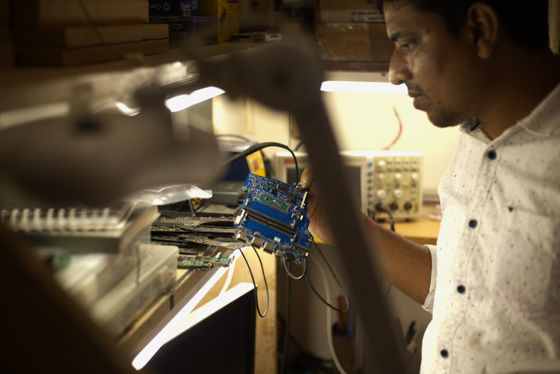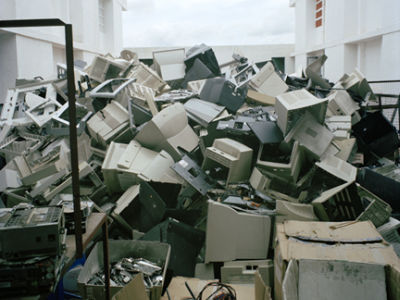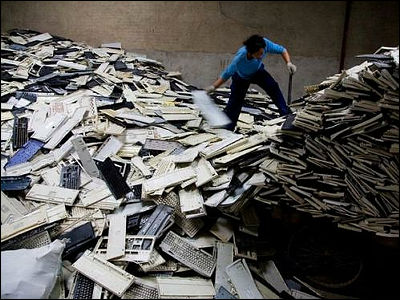What is the reality of India's 'Frankenstein machine' market, where recycled PC parts are patched together to make a single laptop?

In the field of self-built PCs, it is common to replace old or broken parts, but most of these are desktop PCs, and laptop parts are not often replaced. Meanwhile, in India, a market for recycled laptops called 'Frankenstein machines' made by combining old laptop parts and electronic waste is developing, but there is a big problem that involves the global market, reported The Verge, an IT news site.
The rise of 'Frankenstein' laptops in New Delhi's repair markets | The Verge
Historically a country with a strong recycling mentality, India has engineers setting up workshops across the city selling refurbished laptops made by stitching together motherboards, screens and batteries salvaged from old laptops and e-waste.
'Instead of spending 70,000 rupees (US$1,100) on a brand new machine, university students and freelance workers can get a high-performance machine for 10,000 rupees (US$1,000),' said Manohar Singh, owner of a workshop and laptop shop in New Delhi's Nehru Place. 'For many, this difference in price means the difference between being able to work or study or not.'

Like
Singh recalls one time an engineering student came to his shop. 'He had been saving for months but still couldn't afford a new laptop for his classes. I built him a machine using spare parts and he left with tears in his eyes. It was then that I realised for the first time how important this work is.'
While many of the refurbished laptop stores are small workshops, they are on the front lines of a major battle facing the global digital goods market: many global manufacturers are deliberately making PCs difficult to repair by reducing the availability of spare parts, using proprietary screws and implementing software locks to force people to buy new devices.
Inspired by fights over such practices in the West, the Indian government has begun efforts to pass right-to-repair legislation, but discussions have been slow to move, leaving repairers in limbo and forcing them to source parts through informal trade and the e-waste market.
EU adopts 'right to repair' rules requiring manufacturers to repair products free of charge - GIGAZINE

'From old radios to hand-me-down mobile phones, India has a long-standing culture of repair,' said Satish Sinha, vice president of Toxics Link, a non-profit organisation that works on waste management. 'But global companies are pushing for planned obsolescence , making it harder to repair things and forcing people to buy new equipment instead.'
Repairers' reliance on informal supply chains has created huge markets for e-waste in India, including the Sea Lamp market in New Delhi, the country's largest e-waste dump, which receives around 30,000 tonnes of e-waste every day and employs around 50,000 informal workers to dismantle the e-waste and salvage usable parts.

These e-waste sites often lack proper safety measures, exposing collectors and workers to hazardous substances such as lead, mercury and cadmium.
Despite these issues, the 'Frankenstein market' continues to grow, and as the Indian economy develops, demand for refurbished laptops made from unofficial parts is only increasing.
'I have a terrible cough that won't stop but there's nothing I can do because I have to support my family with this work,' Farooq Ahmed, an 18-year-old scrap dealer, told reporters.
Related Posts:
in Hardware, Posted by log1l_ks






